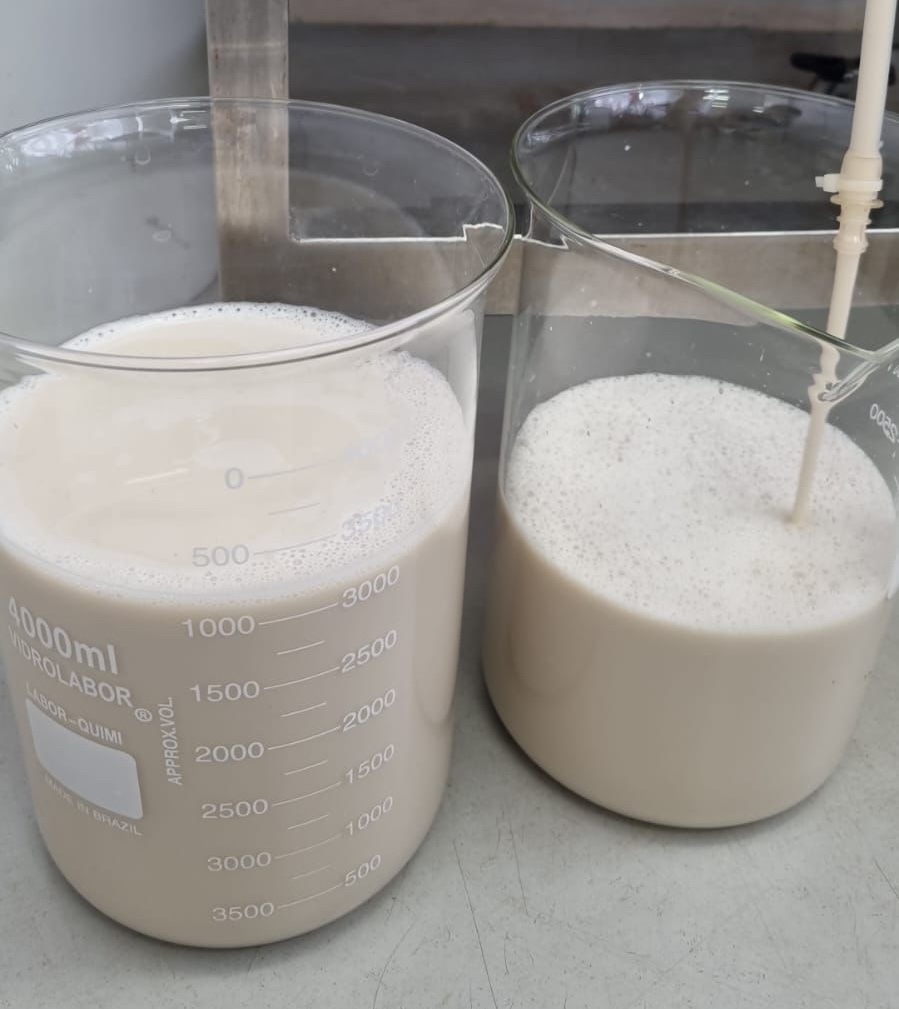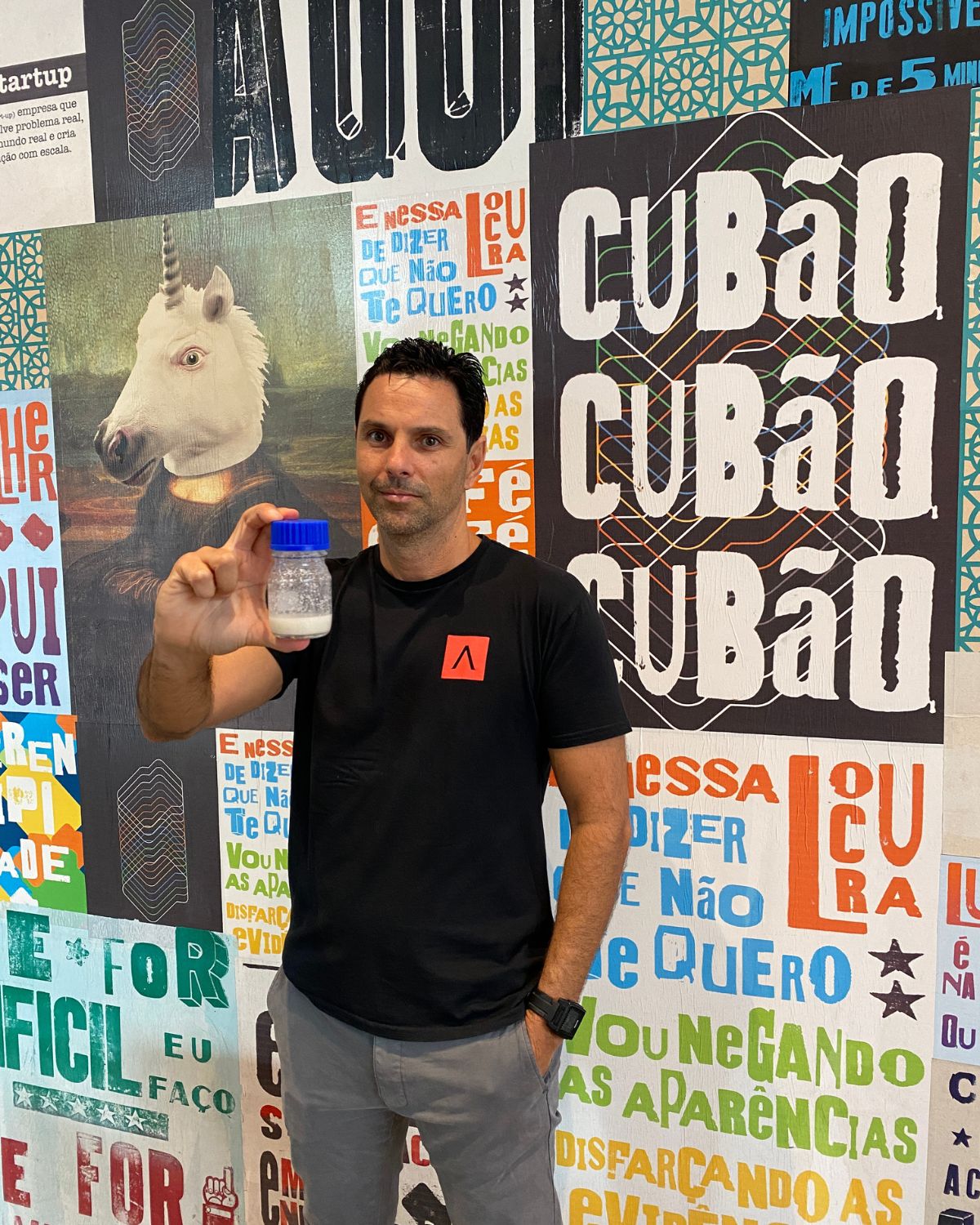
São Paulo-based precision fermentation startup Future Cow has secured R$4.85M ($885,000) in equity and public funding to expand its platform for animal-free whey and casein proteins.
Future Cow, a Brazilian precision fermentation firm producing recombinant dairy proteins, has raised R$4.85M ($885,00) in new funding to scale up its technology and begin licensing it to companies.
The funds are a combination of crowdfunding and public investment. The startup attracted R$1.27M from 145 crowd investors on Captable in January, which was short of its initial target. But it has since secured additional financing from the São Paulo Research Foundation (FAPESP) and Brazilian research agency EMBRAPII, part of the National Center for Research in Energy and Materials (CNPEM).
It takes the company’s total raised past $1.2M, including the $150,000 it raised as part of São Paulo’s Antler residency programme, and the $200,000 invested by Big Idea Ventures through its New Protein Fund II.
The startup will use the fresh capital to advance its R&D efforts to optimise production and increase efficiency, with the aim of reaching commercial scale in 2026.
Future Cow tests scale-up under state-backed accelerator

Founded in 2023 by Leonardo Vieira and Rosana Goldbeck, Future Cow is one of Brazil’s only startups using precision fermentation to create next-generation proteins.
The technology combines traditional fermentation with the latest advancements in biotech to efficiently produce a compound of interest, such as a protein or a fat. It involves identifying the genetic sequence in the animal’s DNA to ‘instruct’ a microbial host to produce recombinant proteins.
Future Cow uses a digitalised blueprint of cow DNA to grow proteins through yeast, which is fed on agricultural byproducts and multiplies in fermentation tanks. The resulting liquid is filtered and dried to extract the bioidentical milk proteins.
The startup is working on producing both casein and whey (including the iron-regulation bovine lactoferrin protein), enabling it to reach a wider consumer base for a range of applications.
It already has a functional yeast strain and is now looking to increase its production yields. “The more the strain produces, the more the unit price falls. So we’re optimizing the fermentation processes,” Vieira, who is the company’s CEO, told the FAPESP last month.
Future Cow’s techno-economic analysis shows that producing precision-fermented milk proteins on a 300,000-litre scale will be less expensive than conventional methods, though there’s some way to go before it reaches industrial manufacturing levels.
It has previously carried out a proof of concept in 15-litre tanks, and has planned to test its technology in fermentation vessels with a capacity of 200, 2,000 and 5,000 litres, as a precursor to commercial-scale production.
It’s scaling the process as part of a deep tech accelerator under CNPEM. “95% of biotechs fail when they leave a bench environment and go to a pilot plant or other relevant environment,” Vieira explained. “We’re very optimistic that with the support of the CNPEM and the available infrastructure, we’ll achieve the scale-up we need for the next stage.”
CEO talks up hybrid milk and Brazil’s future food potential

Future Cow operates a B2B-focused model, positioning itself as an ingredient supplier to the dairy and food industry, instead of an end product developer. This, the company said, will help accelerate its path to market.
“As an ingredient, our product can be incorporated into existing products without facing a high entry barrier,” said Vieira. He suggested that large dairy producers can’t increase production with current production methods and raw materials, so precision fermentation is a natural evolution for their goals.
“When precision fermentation began, it was all very black or white: the product was either animal or it wasn’t animal. Now, we see more hybrid models,” he said. “If [companies] can mix our ingredient with the animal product to create a hybrid product and increase the scale, it’ll be a significant gain.”
Dairy majors have been increasingly interested in the sector. The world’s largest dairy exporter, Fonterra, was an early backer of Dutch firm Vivici, which is now cleared to sell animal-free whey proteins in the US. French dairy giant Danone, meanwhile, has set up a biotech hub with a special focus on precision fermentation, with a view to lowering its emissions.
Speaking of which, Future Cow says its milk proteins can lower emissions by 97% and water use by 99%. “Even if precision fermentation doesn’t fully replace animal milk, a 10% or 20% reduction in the carbon footprint of large corporations in the food sector would already represent a considerable environmental impact,” Vieira pointed out.
His startup has already signed MOUs with dairy and food producers, including multinationals and the national market leader. “With the funds raised, we will accelerate the development of our precision fermentation technology, optimise production and prepare for commercial scale,” he said.
To get there, though, Future Cow will require regulatory approval from the National Health Surveillance Agency (Anvisa). It will also need to fend off a legislative bill aimed at banning the manufacture and sale of “synthetic milk” in Brazil.
The country’s food industry is under the microscope as it prepares to host the UN’s annual climate conference this year. Its cattle industry has had a disastrous impact on Amazon deforestation, and its beef sector alone is generating more than twice the GHG limit outlined in the Paris Agreement.
Vieira believes precision fermentation is a unique opportunity for the nation. “Brazil is the only country in the world that has an abundance of water, sugar, and renewable energy, which are the three essential inputs for fermentation,” he said. “With these characteristics, Brazil can take the lead in a strategic industry for the future of global food.”
The post Brazil’s Future Cow Raises R$4.85M to Scale Up Animal-Free Dairy Proteins Via Fermentation appeared first on Green Queen.
This post was originally published on Green Queen.